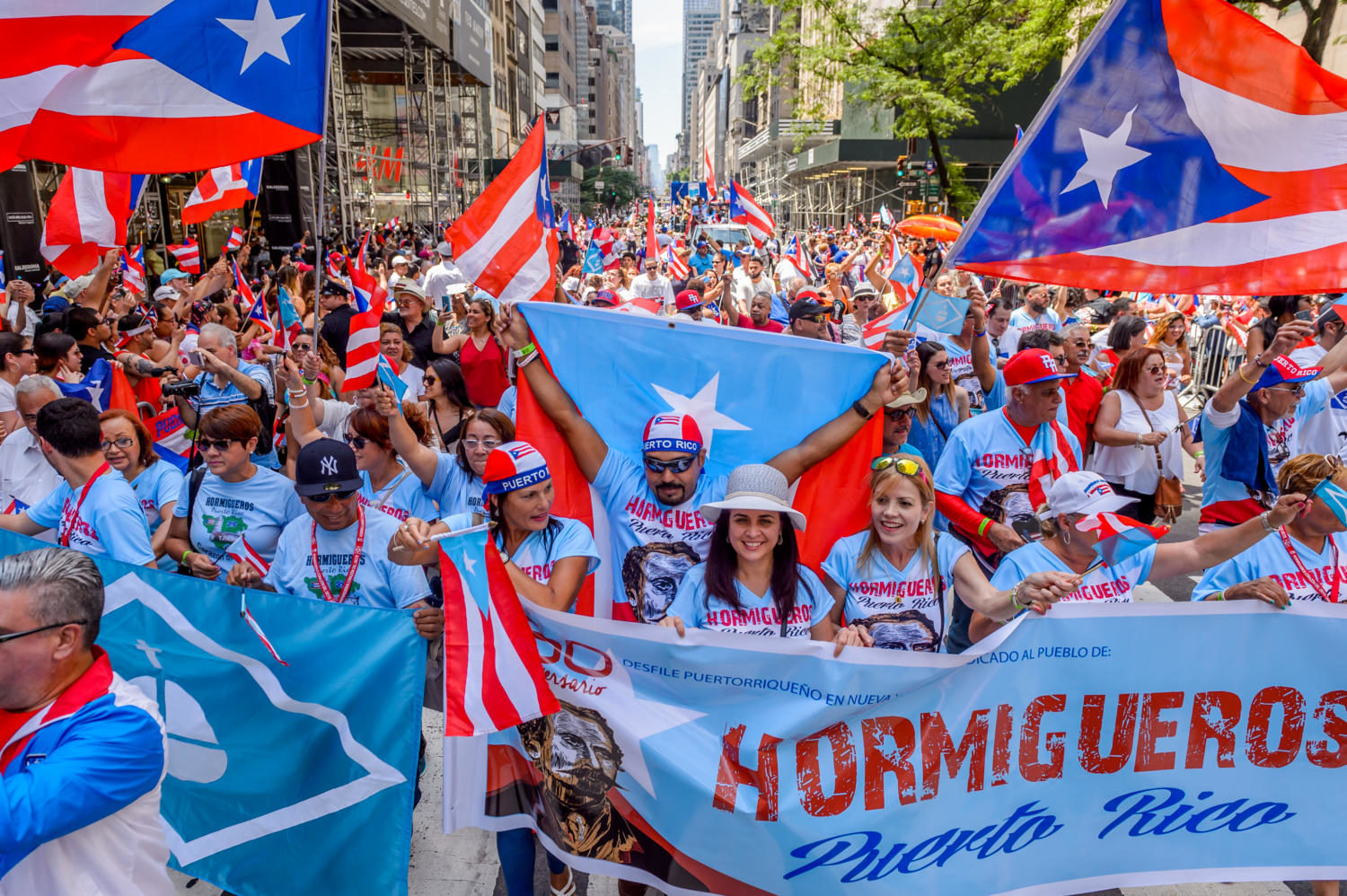Puerto Rico Gov. Ricardo Rossello recently swore in his dream team for political representation — two senators and five representatives to match the commonwealth’s population.
They are expected to travel to Washington soon and ask lawmakers to be seated as the official congressional delegation for Puerto Rico.
While their request is unlikely to see much movement from Hill leadership, the debate over Puerto Rico’s future is unlikely to fade away. For more than a century — ever since the territory was acquired following the Spanish-American War — Congress and successive presidents have grappled with the thorny issue.
On that topic, there is a substantial gap between what island residents would like to see happen and the prevailing sentiment in the continental United States.
Puerto Ricans, who are American citizens, and the general U.S. population do not agree on the tiny island’s statehood quest.
Only 32 percent of Americans in last month’s Economist/YouGov poll last month said Puerto Rico should be admitted into the union as the nation’s 51st state.
On the island, however, 97 percent of Puerto Ricans who voted in the June 11 referendum cast ballots in favor of statehood. Just 1.5 percent voted for complete independence from the U.S. and 1.3 percent were in favor of maintaining the territory’s commonwealth status. Turnout was low — estimates put it at 23 percent of registered voters — and two of the island’s main parties boycotted the vote, Reuters reported.
The divergence between what Puerto Ricans and mainland Americans want is significant. In last month’s poll, 16 percent of respondents said the island should become independent, 25 percent said it should stay a commonwealth and 27 percent said they were not sure. The opt-in, online poll surveyed 1,500 U.S. adults from July 15-18 and had a margin of error of 3 percentage points.
Puerto Rico’s large debt might be one factor that makes its quest for statehood unattractive to mainland U.S. citizens. With a population of 3.5 million, the island’s debt load is worth $34,000 per person. That’s from a total of $123 billion in bonds and unfunded pension liabilities, which is expected to top 107 percent of gross domestic product by 2018, according to Forbes.
June’s statehood referendum was the fifth such exercise for Puerto Rico since 1967, and its second in the last five years.
Rossello, a Democrat who was elected governor last year, campaigned heavily on the promise of finally delivering statehood to the island. Members of the newly sworn-in delegation will be the chief lobbyists for this effort.
Rossello named three Democrats, three Republicans and an independent to the group.
Former Gov. Carlos Romero Barcelo, a Democrat, and Zoraida Fonalledas, national committeewoman for the Republican Party of Puerto Rico, are on deck as senators. The would-be representatives are: Democrats Pedro Rossello, a former governor and father of the current governor, and Charles Rodriguez, former president of the Puerto Rico Senate; former MLB catcher Ivan “Pudge” Rodriguez, an independent; and Republicans Luis Fortuno, a former governor and resident commissioner, and retired Army Maj. Gen. Felix Santoni.
Their agenda is to “educate and promote the interest of Puerto Ricans as beneficial for all Americans,” said Carlos Mercader, executive director of the Puerto Rico Federal Affairs Administration, or PRFAA.
The unlikelihood Congress has the power to grant statehood but that remains an unlikely proposition given the current political climate on the Hill and the mounting congressional agenda for September, which includes funding the government and addressing the debt limit.
But the Puerto Rican delegation plans to press on, following the process that many states used to join the union.
“While the delegation will follow the Tennessee Plan, it will be difficult to draft a bill based entirely on that model because constitutional rights are not available to Puerto Rico like it was to those incorporated states previously admitted,” Mercader said.
As outlined in the Tennessee Plan, the delegation will ask Congress to recognize them as members by the drafting of a formal bill for admission and denouncing Puerto Rico’s current status as an unincorporated territory.
“This means that the island’s path to statehood might include some nuances, like amending parts of the playbook and seeking a unique approach to gain admission to the union,” Mercader said.
The delegation is spending August drafting a roadmap to present to Congress after it returns from its summer recess on Sept. 5.
Members of the delegation have agreed to forego pay until Puerto Rico gains statehood.
___
(c)2017 CQ-Roll Call, Inc., All Rights Reserved
Visit CQ Roll Call at www.rollcall.com
Distributed by Tribune Content Agency, LLC.
BY KATANGA JOHNSON

The National Puerto Rican Day Parade on June 11, 2017 in New York. Puerto Rico is pressing its quest for statehood. (Erik McGregor/Sipa USA/TNS)
Puerto Rico pressing on in its quest for statehood
No comments:
Post a Comment